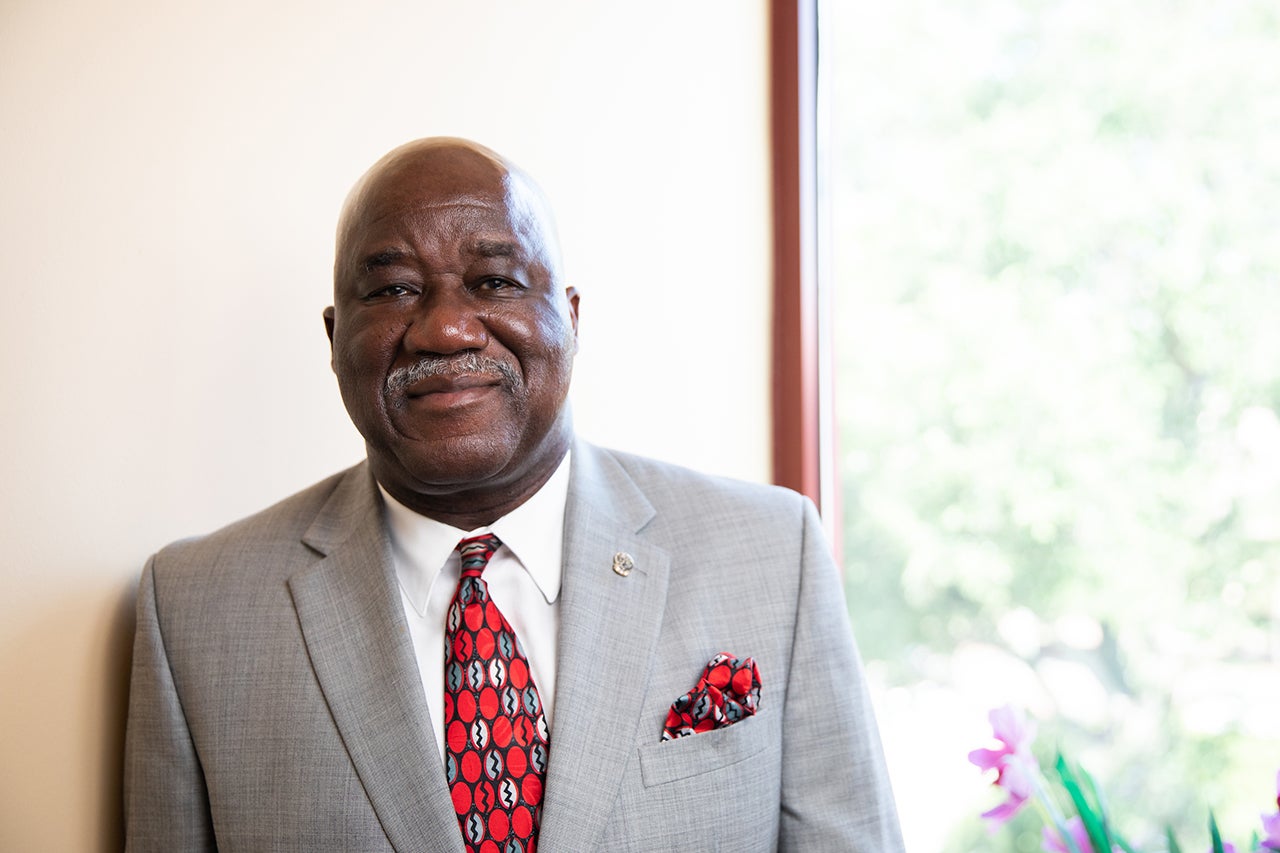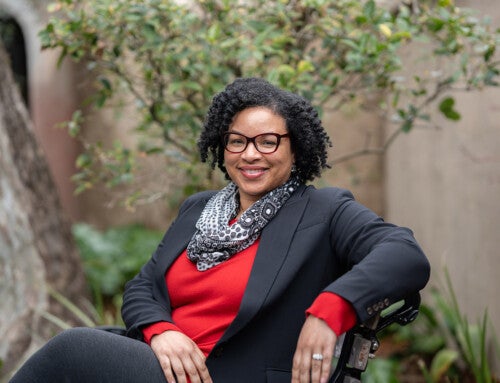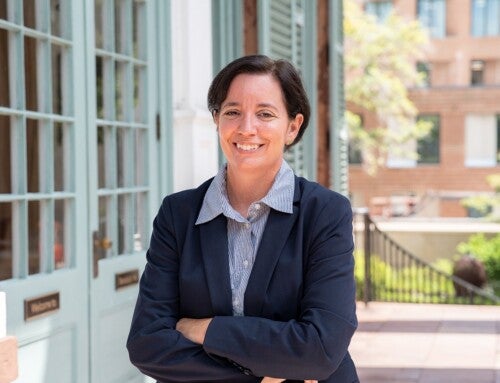On the bookshelf behind his desk in his third-floor office in TD Arena, Otto German ’73 has two framed photos on a shelf. Perhaps a man’s life can’t be summed up in a couple of photos, but these two come pretty close.
The first is a portrait of German and his late wife and partner of 51 years, Albertha, who passed away at the end of December 2017. He still remembers the exact day they met: June 20, 1966.
“We had a pretty unique relationship,” he says, looking at her image. “It was never all about her, it was never all about me. It was about a union and a promise that we made to each other.”
The other photo is a group shot from 2008 of the 40th anniversary celebration of the integration of the College of Charleston. German is pictured with other trailblazers like Eddie Ganaway ’71, the College’s first black graduate; Carrie Nesbitt Gibbs ’72, the first black female graduate; Fred Daniels, the former men’s basketball coach and admissions director; Lucille Simmons Whipper, the first black administrator; Marvin Dulaney, a former history professor and Avery Research Center executive director; Remus Harper ‘72, the first black scholarship athlete; and former presidents Ted Stern and P. George Benson, among others.
“I was honored to be a part of something new to the College,” he says. “But here we are 10 years later [from anniversary photo] and there’s still work to do when we look at diversity across the board in all areas of the College.”
German, who became the second black scholarship athlete after Harper for the 1970-71 season during his sophomore year at the College, knows the importance scholarships can play in a young athlete’s life. So, he couldn’t be more grateful that the Alumni Association Board of Directors during its meeting on June 15, 2018, voted to rename the association’s two athletic scholarships the Otto B. German ’73 Endowed Alumni Scholarships in Athletics.
“I’m humbled and honored that my fellow alums think that much of me,” says German, 67, who also serves as the president of the College’s Black Alumni Council. “That is better than being in the Athletics Hall of Fame.”
After graduating in 1973 with a bachelor’s degree in education, German went to work at the College in financial aid, student activities and admissions before moving over to the athletics department, where he has been for 26 years, rising to the post of associate director of athletics/NCAA compliance.
When he first arrived on campus more than 45 years ago, there were just 445 students and he’s astounded at the growth.
“It grew from a small, very, very white institution to what it is today with over 11,000 students,” he says.
Although the College has a way to go to becoming more diverse (African-Americans make up 7.7 percent of the student body), German is mighty pleased with the hiring of Head Men’s Basketball Coach Earl Grant.
“I never thought I’d live to see the day where we would have an African-American as our head basketball coach,” says German. “Not only do we have an African-American as the head men’s basketball coach, but we have an African-American as the head women’s basketball coach, as well [Candice Jackson].”
Being a trailblazer at CofC was not as difficult for German as you might imagine. That’s because he had already been through it once as one of seven black students – among 1,500 white students – who helped integrate Moultrie High School in Mt. Pleasant, South Carolina. Sure, being a civil rights pioneer was part of it, but so was convenience: Moultrie was only three blocks from his house in Mt. Pleasant’s Old Village. Laing, the black high school, was nine miles away.
“But it was a double whammy because I was subject to scrutiny on both ends of the spectrum,” he recalls. “I was viewed to a large degree as an intruder at Moultrie and a traitor at Laing, but I survived it. If I had to do it again, I’d do it the same way.”
He wasn’t really accepted at Moultrie until the basketball coach asked him to join the team his junior year.
“Walking down the hallways wasn’t as bad anymore,” says German, who was considered the best basketball player in the Lowcountry his senior year, leading Moultrie to the Lower State Finals. “It was like Moses parting the Red Sea after making the team. That’s the great power of sport. It brings people together. When you put that uniform on, you become one. The same thing happened here at the College. Remus set the table and I just pulled up a chair.”
German’s three children, along with his 10 grandchildren and three great-grandchildren, all live in the area, so he has a lot of support as he works through his grief of Albertha’s passing, but there will come a day – sooner probably than later – when he’ll have to say goodbye to that other 50-year relationship, the one with the College.
“My teammates have called me and said, ‘Man, don’t leave there.’ I said, ‘That’s easy for you to say. You’re probably calling me from the golf course,’” he says with a hearty laugh. “This job can be a stressful. Compliance is just like taxes with new rules every year, but I love this institution. When I leave here, the only thing I want people to say is that he did his job to the best of his ability.”
To make a donation, please visit the Otto B. German ’73 Endowed Alumni Scholarships in Athletics site.
All photos by Mike Ledford






